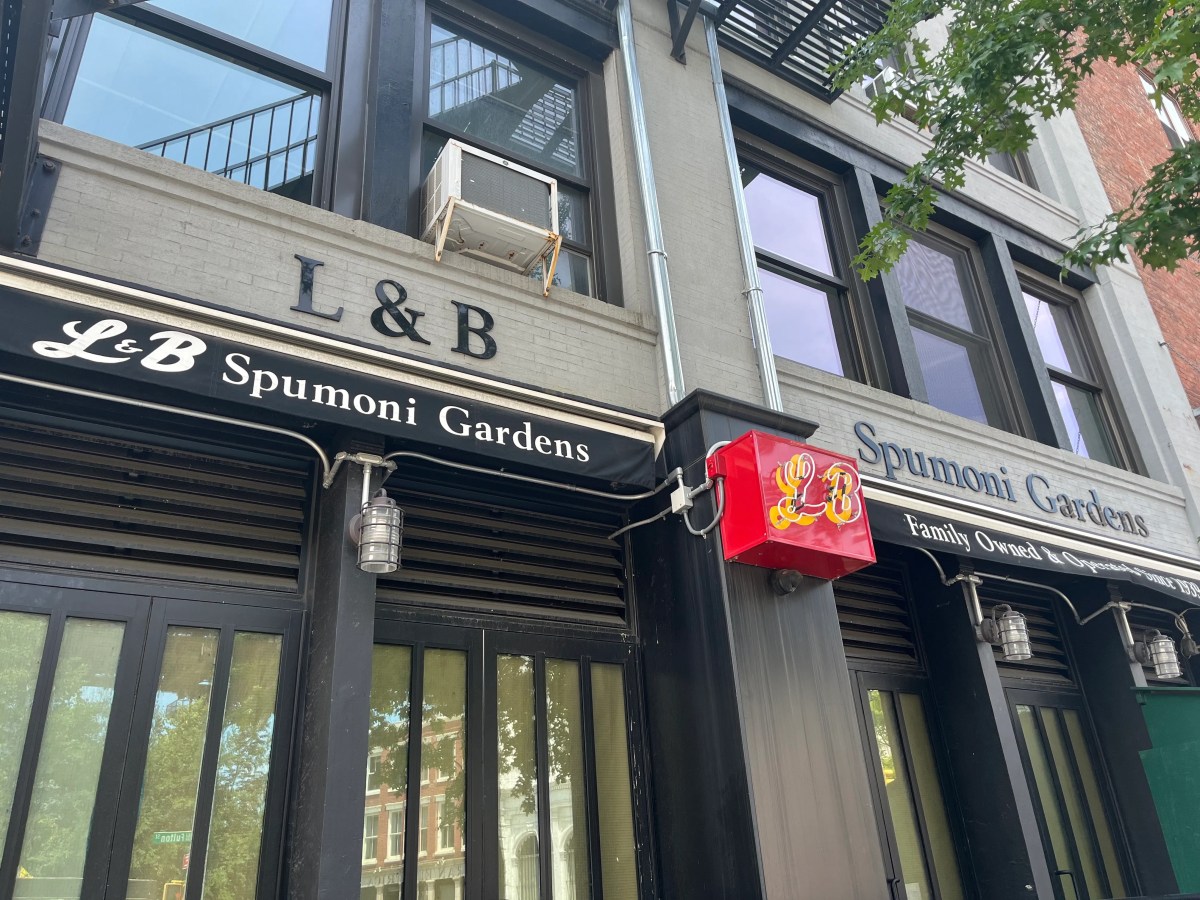By Jerry Tallmer
It is not perhaps the best of all possible ways to start an interview.
To say to the playwright/director: I received this press release, and I read the first sentence — “Anne Frank meets Anton Chekhov in ‘DAYS AND NIGHTS: page 121, lines 11 and 12,’ a new play that blends dialogue from ‘The Seagull’ with the characters and circumstances from ‘Anne Frank: The Diary of a Young Girl’ ” — and I thought: What manner of maniac would try to weld those two huge pieces of our culture into one unembarrassing, purposeful whole?
And then further to say to this playwright/director: “So then I started reading your play, and almost immediately thought of that Dadaist game — or kids’ game — where you cut up some writing of one sort or another, hurl the pieces into the air, then pick them up off the floor in whatever order and write everything down, come what may.”
Fortunately, Marc Stuart Weitz is a nice young guy of 34 with a nice, receptive smile. Fortunately, also, “DAYS AND NIGHTS, page 121, lines 11 and 12,” once you stay with it, reveals itself to be a quite fascinating double-image (think Picasso) work for theater, which may make a bit of a sensation when it opens this Friday for two weeks as a Fringe Festival entry at the Lafayette Street Theater.
What Weitz has done, working with a body of actors — several bodies of actors these past several years — is take the words and emotions that Chekhov gave to Nina, Konstantin, Arkadina, Masha, Trigorin, et al., and put them with careful selectivity into the mouths of Anne Frank, Margot, Peter, Mr. Frank, Mrs. Frank, et al., trapped in that packed attic where the little details of daily life — meals, sleep, the chamber pot — blend into a larger story, a larger claustrophobic whole.
“Like a Seurat painting,” Marc Weitz said over coffee the other morning. “The dots all coming together.”
It’s not a one-to-one thing. This play’s Anne, for instance, will speak the lines of more than one character of “The Seagull,” most particularly, and most diametrically, many of the words of Nina, the young girl “who lives all her life beside a lake,” like a seagull, and runs away to be an actress, but many also that belong to the famous playwright Trigorin, her idol, who just wants to fish, not write, but can’t stop writing, and who in his boredom “comes along and sees her, and because he’s got nothing better to do, he destroys her.”
You intermesh all this with young Konstantin’s wooly lakeside symbolism (“Men, lions, eagles and crows, the horned deer … ”) delivered over the attic’s forbidden radio in the voice of Winston Churchill, followed not long later over that same radio by Adolf Hitler raving for worldwide slaughter of the Jews (Berlin Sportspalast, January 30, 1943), and suddenly Weitz’s method clicks into place, quite in keeping with a statement by Anton Chekhov that Marc Weitz is happy to quote:
“Let the things that happen on stage be just as complex and yet just as simple as they are in life. For instance, people are having a meal, just having a meal, but at the same time their happiness is being created, or their lives are being smashed up … ”
All of this started in Weitz’s head as a member of a Chekhov workshop conducted by Anne Bogart at her SITI company in the West 30s a couple of years ago.
“I had to think, what do I connect to ‘The Seagull’? — and came up with the realization that all these characters are limiting themselves, holding themselves back. I myself have these moments, periods in my life where,” said Weitz, “I am my own worst enemy.
“So then I got to thinking, what was the opposite [of that self-negation]” — where the restriction is external, not internal — “and came up first with ‘Waiting for Godot,’ but that’s already been explored in all sorts of famous ways. And then I thought of Anne Frank.”
He had not only directed a “Diary of Anne Frank” (by Frances Goodrich and Albert Hackett) for a tour of high schools a dozen years ago, but had played its Peter, the boy Anne falls in love with as she discovers her own sexuality.
Dialogue from Anne’s diary was not accessible — it is too carefully guarded by the Anne Frank estate — but Chekhov is in the public domain. With a straight face, Weitz throws in an aside: “Natalie Portman played Anne on Broadway — and Nina in Central Park.”
Weitz and his actors worked from a half-dozen English-language versions. The rationale for Amsterdam Chekhov: “Life in that attic is unspeakable. No words for it; so they use somebody else’s words. I’ve also used the Chekhov for irony and longing. Lots of this has been collaborative with the actors.” Three groups of actors over as many years.
He believes there’s a psychological reason for every line in “DAYS AND NIGHTS: page 121, lines 11 and 12 — which title, by the way, or of course, comes from Nina’s secret message to Trigorin, the page reference being to a line in one of his own stories: “If ever my life can be of use to you, come and take it.”
“You know,” Weitz said, flashing his smile, “I didn’t exactly cut up ‘The Seagull,’ but it’s been something like that.” Last year he won Fringe Festival distinction for his direction of British playwright Moby Pomerance’s “Broken Hands,” a drama about boxers and murder.
This is the first thing Weitz himself has ever written “for a public audience.” He grew up in Westchester, got a degree in Mechanical Engineering from the University of Pennsylvania, built no bridges or tunnels, formed his own Purple Man Theater Company in 1998, and lives in Chelsea with his actress girlfriend. Her name isn’t Nina and it isn’t Anne. His mother and his father are both doctors. Chekhov was a doctor. Funny coincidence, that.
DAYS AND NIGHTS: page 121, lines 11 and 12. Adapted and directed by Marc Stuart Weitz from “Anne Frank: The Diary of a Young Girl” and “The Seagull,”: by Anton Chekhov. With Erin Gorski, Catherine Gowl, Charlie Hensley, David Douglas Smith, Carrie Heitman, Philippe Bowgen, Jessica Ray, Raymond James Hill. A New York International Fringe Festival production in a world premiere by the Purple Man Theater Theater Company, August 10-26 at the Lafayette Street Theater, 45 Bleecker Street, (212) 279-4488 or www.annefrankseagull.com or www.fringenyc.org.







































